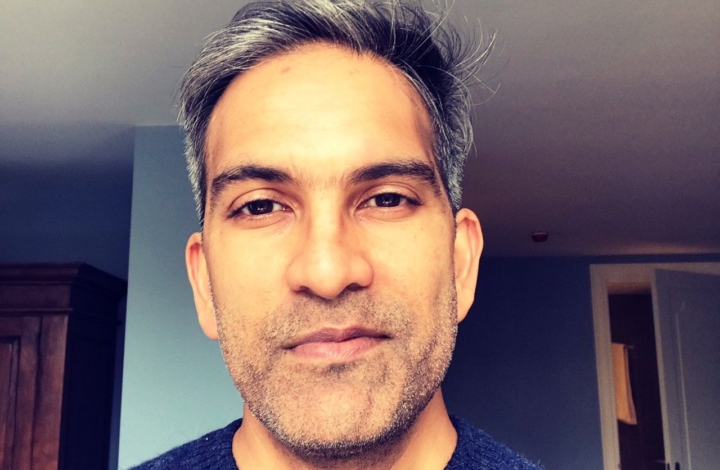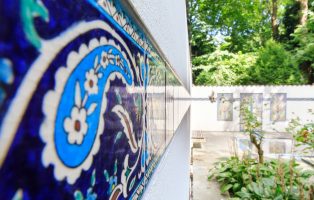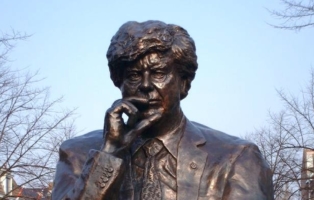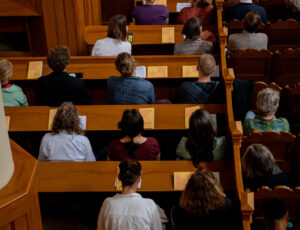
(Re)Making Public Space
Critical theorists have long pushed us to think about space in dynamic and processual ways. How are public spaces made, unmade and remade, particularly as a result of the flow of people? What contrasting conceptions of ‘publicness’ and ‘space’ are brought into the mix as a result of such flows? What happens to public space when mobility is shut down or accelerated – as a result of war, pandemic, economic and climate crisis? Who can still belong, and who is forced to move out or away? Given the well-documented shrinking of the public since the advent of neoliberalism, must our imaginaries of the public necessarily hark back, nostalgically, to what has been lost; or are we witnessing emergent forms of belonging and publicness that have yet to be adequately recognized?
Sphere Curator: Rahul Rao
Sessions, researchers and papers (in progress):
1. Mapping, tracing and critiquing local spaces of arrival
- Jeff Handmaker and Caroline Nalule – From control to deterrence: Assessing border enforcement in South Africa
- Sara Miellet – Contesting “States within the City”: negotiating the “publicness” of asylum centres
- Moritz Baumgärtel and Franziska Pett – The ‘Safe Harbor’ of Berlin: Socio-legal constellations and complex strategies of divergence
2.Refugee youth and everyday bordering in public space
- Rik Huizinga and Ilse van Liempt – Home, entrapment and acts of refusal: The role of place identity in young refugees’ imaginations of future-selves.
- Mattias De Backer – Sensing the city: refugees’ and asylum-seekers’ everyday experiences in public spaces
- Kathrin Hörschelmann, Elisabeth Kirndörfer and Johanna Bastian – Relational security and insecurity in public space: Experiences and practices of young asylum seekers and refugees in Leipzig
- Robin Finlay – Examining the meaning and use of public and domestic spaces for socially isolated asylum seekers in the context of Covid-19
3. Diasporic leisure at ‘home’: Carving out belonging in public space
- Lauren Wagner – Introduction to “Diasporic leisure at ‘home’: Carving out belonging in public space”
- Gladys Akom Ankobrey – Ghana has become a playground’: Young Dutch-Ghanaians navigating the origin-country’s leisure scene
- Silvia Wojczeweski – Diasporic leisure at ‘home’: Carving out belonging in public space
4.Belonging in the city
- Philip Kasinitz – Belonging in the Post Covid City
- Abhishruti Sarma – Making Homes and Places: Migrant Women in the times of a Global Pandemic in Guwahati, India
- Akofa Laetitia Boglo – Imaginations in conversation: Imagined communities at neighbourhood level
- Felix Kram – Belonging and Migrant Labour in Freetown, 1885-1910
5.Gender, sexuality and public space
- Iline Ceelen – The Amsterdam Canal Parade: a queer space of one’s own or a place of exclusion?
- Kathrine van den Bogert – Critically Moving Dutch Public Space: An Ethnography of Moroccan-Dutch Muslim Girls’ Playing Street Football
- Chris van Kalkeren – Difference and Solidarity: A Study on Belonging and Solidarity within the Amsterdam Queer Movement
6. The sensorium of liberation
- Rotem Steinbock – Configurations of Artistic, National, and Transnational Belonging among Visual Artists from Israel/Palestine who Immigrated to Berlin
- Patricia Garcia – “Contemporary Urban Peripheries and Literary Narratives of (Un)Belonging”
- Hinda Seif – Women’s Muralism: Chicago’s Mexicana/Latina Communities Claiming Public Space
- Shambhawi Tripathi – ‘Spaces’ for politics and/or ‘Places’ for dreaming? Reading magical realist fiction as a reimagination of political space




